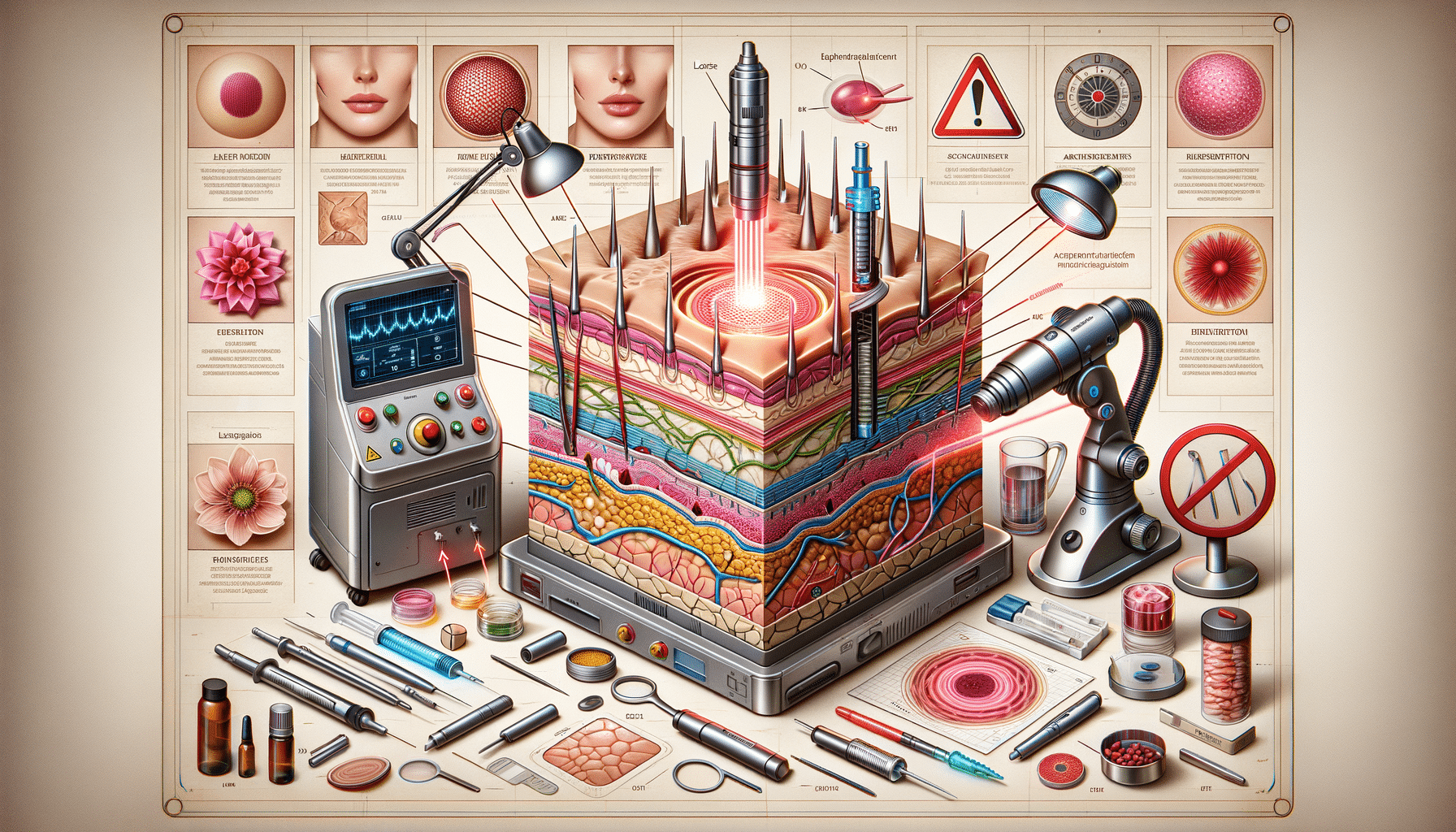
Transforming Skincare: Embracing the Revolution of Laser Skin Rejuvenation
Laser Skin Rejuvenation Benefits and Risks
Laser skin rejuvenation is a popular cosmetic procedure aimed at reducing the signs of aging, improving skin texture, and enhancing overall skin appearance. One of the prominent benefits of this treatment is its ability to stimulate collagen production, which is essential for maintaining youthful and firm skin. Patients often report a significant reduction in fine lines, wrinkles, and sun damage, making it a favored choice for those seeking non-invasive solutions.
However, like any medical procedure, laser skin rejuvenation comes with its own set of risks. Potential side effects include redness, swelling, and temporary discomfort. In rare cases, patients may experience changes in skin pigmentation or scarring. It’s crucial to consult with a qualified dermatologist or licensed practitioner to evaluate your skin type and discuss any underlying conditions that might increase the risk of adverse reactions. Understanding both the benefits and the risks is essential for making an informed decision about undergoing laser skin rejuvenation.
How to Prepare for a Laser Skin Rejuvenation Procedure
Preparing for a laser skin rejuvenation procedure requires careful consideration and planning to ensure optimal results and minimize risks. First and foremost, it’s important to have a detailed consultation with a certified specialist who can assess your skin type and recommend the most suitable laser treatment. During this consultation, you should discuss your medical history, any medications you are currently taking, and your expectations from the procedure.
In the weeks leading up to the treatment, patients are generally advised to avoid sun exposure and use a broad-spectrum sunscreen to protect the skin. Additionally, certain skincare products, particularly those containing retinoids or glycolic acid, may need to be discontinued as they can increase skin sensitivity. Smoking should be avoided as it can impair the healing process and affect the overall outcome of the procedure.
On the day of the procedure, ensure your skin is clean and free from any makeup or lotions. Wearing comfortable clothing and arranging for someone to drive you home post-procedure is also recommended, as some treatments may involve the use of numbing agents that can temporarily affect your ability to drive.
Laser Skin Rejuvenation Aftercare Tips
Aftercare is a critical component of the laser skin rejuvenation process, as it significantly influences the healing and final results. Immediately following the procedure, your skin may feel sensitive and appear red, similar to a mild sunburn. To soothe the skin, apply cool compresses and use gentle, fragrance-free moisturizers to maintain hydration.
It’s essential to avoid direct sun exposure and apply a high-SPF sunscreen regularly to protect the skin from UV rays, which can exacerbate redness and increase the risk of pigmentation changes. Patients should also refrain from using harsh skincare products or exfoliants until the skin has fully healed, which can take a few days to weeks depending on the intensity of the treatment.
Staying hydrated and maintaining a healthy diet can support the skin’s natural repair processes. Follow-up appointments with your dermatologist are important to monitor progress and address any concerns that may arise during the recovery period. By adhering to these aftercare tips, you can enhance the effectiveness of the treatment and enjoy long-lasting results.


